Taxi doesn’t seem like the type of show you’d watch for money advice, but you watch it enough, you can start to pick up what you might call Taxi’s rules for better financial living.
It was a great show, if I may digress for a moment. Taxi, in my opinion, has always been one of those underrated shows. It was battered in the ratings when it was on the air. You never see talk of a Taxi reboot or sequel. There is no Taxi movie featuring an Alex Reiger and Reverend Jim, sadly.
But what a show. The cast was outstanding. The writing was stellar. For those who aren’t familiar with the TV series, Taxi was about a group of cab drivers at the Sunshine Cab Company in New York City. The name was ironic, since the garage was kind of a dump and managed by Louie DePalma, a greedy jerk – who got a lot of pleasure out of being mean – but he was really disguising the fact that he was as vulnerable as anybody else. He also cared deeply about all of the cab drivers at the Sunshine Cab Company, even if he did his best not to show it.
The show has a lot of life lessons buried within Taxi, but not surprisingly, given how much our lives are centered around the all-important dollar, it offers a lot of financial wisdom.
So here we go, some financial tips from Taxi.
Today's "TV Lesson" Breakdown:
- Probably best to not lend friends money.
- But if you offer to loan money to a friend, be prepared to actually loan it.
- It is better to give money than receive it.
- To get ahead in your career, it helps to look the part.
- It takes money to make money.
- Investing in a business may bring you wealth, but not quickly
- Being rich sometime isn’t enough to get you in the door.
- Wealth is handled differently in other countries
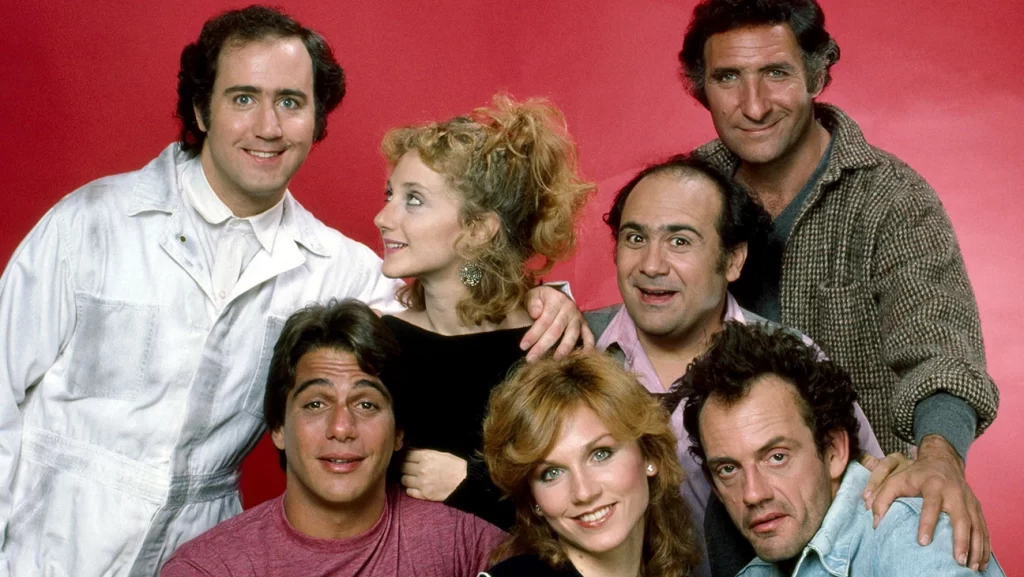
Probably best to not lend friends money.
In the episode “Money Troubles,’ that’s exactly what John Burns (Randall Carver) and his wife Suzanne (Ellen Regan) experience. John and Suzanne are going to college, and while John’s taxi gig is paying for most of their bills, their rent is paid for by Suzanne’s parents. That is, until Suzanne’s parents decide to move for Florida.
Now they can’t afford to help out, and suddenly John and Suzanne can only see one solution: one of them will have to quit school and work full-time and use that money to pay the rent. Alex Rieger (Judd Hirsch) catches wind of this when he’s a dinner guest at John and Suzanne’s, and he thinks about it, and he knows he has enough stashed away in savings that he could help them out.
But before Alex gives John and Suzanne the money, he gives them and the TV audience a lot of reasons why it’s probably best to not lend friends money.
“Listen, the reason I came over is I was thinking of loaning you the money you need. No, no, please. Let me finish,” he adds, when John and Suzanne start to interrupt. “I'm really not sure that loaning you the money is such a good idea because, see, I've loaned money to friends a few times in my life. It's not only
getting the money back, although that's a very important factor. It's just a question of how it affects the relationship between.”
Alex then pauses and asks: “Did I mention that getting the money back is important?”
He sees the looks on John and Suzanne’s faces and gets back to the task at hand. “Well, you end up by losing friends a lot of the time, and I don't know what I would do without those warm evenings as your dinner guest, and, uh... You get what I'm saying?”
Suzanne and John just look at him.
“I'm saying, do you want it in cash or a check?” Alex asks.

But if you offer to loan money to a friend, be prepared to actually loan it.
Fortunately, for Alex, who is clearly having second thoughts during his speech, John says that he can’t take the money.
That initiates a frustrated response from his wife, Suzanne. Alex ends up retreating to their restroom, so the newlyweds can discuss accepting a loan from their friend.
Suzanne reasonably points out to John, “I cannot figure out why it's okay to take money from my folks but not your friends when it comes to something as important as our education.”
John concedes she has a point and says that they really shouldn’t have taken money from her parents.
John then makes an impassioned speech about how he resented her parents, Suzanne and himself for taking money from them.
John says, “I wouldn't feel great going to bed every night wondering how much I owed Alex, or whether I should even have taken it from him in the first place. Is it so terrible to say that I want peace of mind?”
Of course, after agreeing that John has a point, that they shouldn’t borrow or take money from other people, the newlyweds realize that they’re back to square one – somebody has to drop out of school. John flips a coin, with the deal being that the loser will go to work full time, and it turns out that Suzanne will be dropping out. But after a few agonizing moments, John ends up confessing that she won the coin toss – he lied about heads coming up.
“I just want to go to school so bad,” John moans. “Look, I'll go nuts if I'm a cab driver the rest of my life. Please, let me go to school. No. I can't ask that. What am I turning into here? No, you go to school, and that's it!”
And John adds, “And I'll go to school. We'll take the money from Alex. It will be okay. We'll pay him back.”
John and Suzanne call Alex out of the bathroom.
“We talked it over,” John says. “And we feel that borrowing money can really hurt a friendship.”
“I know, I know,” Alex says, clearly relieved.
“But, Alex, we decided that our friendship can stand the strain, and we'll borrow as much money as you've got.”
“Great,” Alex says, less than thrilled. “Just another day in the life of Alex Reiger, super jerk.”
Well, if he didn’t want to lend the money… still, you get the idea that even if he had to do it again, Alex would have lent the money. This was a guy who really cared about his friends.
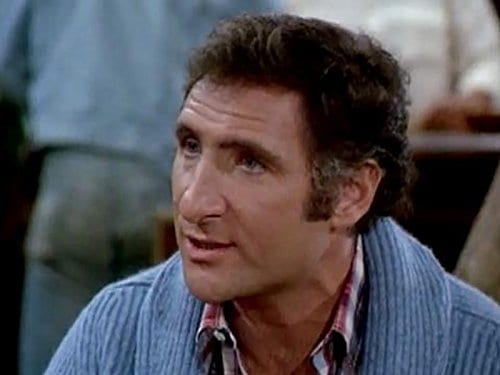
It is better to give money than receive it.
Well, maybe it doesn’t feel that way, if you’re always broke. But Taxi makes the case that we would all feel better if we were more charitable in the episode, “A Grand Gesture,” which comes in late in the series’ run.
Reverend Jim is a millionaire at this point in the show, having been left $3.5 million by his rich father, and he gives several of his friends in the garage $1,000 – on the condition that they give it to somebody else. Basically, Jim has been getting grief from the gang for giving away too much money, and he wants to show everybody how good generosity feels.
Elaine uses the thousand bucks as a teaching lesson and gives $1,000 to her daughter and convinces her to give half of it to her brother, who isn’t in their apartment that night. It’s a sweet moment, a teaching moment about generosity for her daughter, but it does feel like it’s a little out of the spirit of Jim’s plan. If you’re giving money to your kids, the money stays in your household, and so the money is practically going to you. Still, you can’t begrudge her. As a single mom working at an art gallery and as a taxi driver, Elaine probably didn’t get a lot of chances to give her kids a lot of money all at once.
Tony uses the $1,000 to buy an aging friend, Walt (Scatman Crothers) a large color TV set. Walt loves TV and has, up to now, owned a crummy black and white set. Latka and his wife Simka (Carol Kane) end up giving the money to their reverend, who gives it back to the couple when he hears that Simka was hoping to keep the money, to help them when they have a baby.
Alex gives $1,100 (kicking in a hundred bucks of his own) to an old lady with seven kids. She has a landlady who plans on shutting the heat off in her apartment.
Alex admits to Jim that the grand gesture felt great. “If you’d seen the look on that lady’s face when I handed her that $1,100 bucks,” Alex marvels.
But it’s Louie DePalma who is probably transformed the most from the experience. Louie decides to give his assistant, Jeff Bennett (J. Alan Thomas) the thousand. Louie knows Jeff isn’t raking in the big bucks and could use the money.
Well, Jeff doesn’t trust Louie.
“All I know is, if it's coming from Louie De Palma, there's got to be a catch,” Jeff says.
“What, what, what kind of catch?” Louie demands.
Jeff admits he doesn’t know, but he has some theories. “Maybe it's counterfeit money. Or maybe it's stolen money and you want to plant it on me. Maybe it's contaminated from germ warfare, and the Russians paid you to plant it on my body as an experiment to see if I sprout some kind of weird fungus.”
“It’s beginning to sound like you don’t trust me,” Louie says.
Only after Louie confesses that the money came from Jim and explains the experiment does Jeff realize his boss actually has pure motives. And then Jeff regrets doubting Louie, who is left a bit shell-shocked.
“Iggy said I’d feel great,” Louie says, referring to his nickname for Jim Ignatowski. “I said I wouldn’t feel anything. I never imagined that I would feel like a sack of dirt.”
Still, by the end, after seeing how touched Jeff is, and how much the thousand dollars will mean for his family, it’s clear that even Louie DePalma has to admit that there’s something to the idea of helping a fellow human being. It feels good to be good.
To get ahead in your career, it helps to look the part.
Louie DePalma learns an important business lesson in the last half of a two episode story arc called “On the Job.” If you’ve ever thought that it doesn’t really matter how you look or act in your career, as long as you perform well, you may want to rethink that.
This Taxi episode does a great job in showing how it isn’t just enough to perform well – you really should make an effort to try to fit in with your company’s culture.
The Sunshine Cab Co. has gone bankrupt in these episodes, and so everybody has to get a part-time job while they wait for the taxi service to reopen. Louie becomes a stockbroker and convinces the company president to hire him.
“What this organization needs is a man who can get dirty--someone who'll go out there and scrape up any business he can, any way he can, from anybody who's got a couple of bucks,” Louie says. “You don't need fancy clothes and a nice education to make money. What you need is volume. You need hustle. You need to get dirty. I was born dirty, Mr. Gray, and every day I get dirtier... and dirtier.”
Louie gets the job. But he is soon fired, even though he out-hustled everybody else in the company, making more money than anyone.
“The problem is... we can't stand you,” Mr. Gray tells Louie. “Everyone's complaining. It's nothing personal. You're just... disgusting.”
So if you want to get ahead in your career and not find yourself one day out of a job, you may want to lightly emulate Louie’s enthusiasm and hustle – but try to fit in.
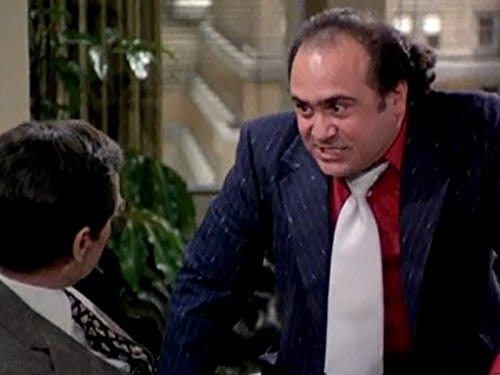
It takes money to make money.
Sure, we all know that, but the concept is demonstrated nicely in a second season episode of Taxi called “Art Work.”
Elaine Nardo works part-time at an art gallery, and she makes the observation about how art is a good investment. She’s just witnessed Alex planning on making a wager on a boxing match. (Tony has a tip that a boxer named Johnson is a lightweight and will lose the fight. Unfortunately, Alex quickly realizes that the boxer named Johnson is fighting another boxer named Johnson. Now they don’t know which Johnson to bet on.)
“Every day you come in here with some sure thing. and it never works out,” Elaine tells Alex. “And every day at that gallery, I see rich people getting richer. I mean, they are always gambling, and it never misses. Just once, I'd like to see somebody like us make some money.”
That leads to Elaine, Alex, Bobby, Tony, Latka, Jim and Louie pooling their money with plans on buying a painting at an art auction and holding it until the value goes up. Elaine has her eye on a painting worth $2,000. She believes that by the end of the year, it might be worth $5,000. Even more if the painter, who is old, dies.
Of course, by the end of the episode, the painter has died, the value of the painting has shot up, and the gang ends up losing out on buying the painting, and they all end up broke as usual and buying some cheap reproductions of art that they like, instead of investing their money. Still, Elaine sums up their failure to outbid other people on the painting by saying, “It just goes to prove one thing – you got to have money to make money.”
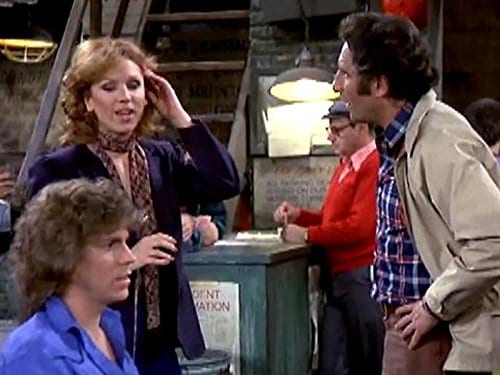
Investing in a business may bring you wealth, but not quickly
We see that on a couple occasions in Taxi. After Jim Ignatowski buys the local hangout, Mario’s, things don’t go smoothly. Jim has some run-ins with a liquor authority agent, and he has to fire the chef, who was on drugs. Jim also has a lot of trouble rustling up customers. When he’s asked why he’s taking a dinner break at the garage instead of his restaurant, Jim says, “I hate to eat alone.”
In the “Art Work” episode, we learn that nursing homes are possibly a good investment, if you want to take that advice from Louie DePalma.
“You know, nursing homes are a really good deal,” Louie says. “The only problem is the people that run this one spend too much money on upkeep, you know, and there's not enough profits to go around.”
Louie goes onto say that he pointed out to management where they could cut costs.
“I told them, ‘Those people don't eat three meals a day.’ I mean, their memories are so bad they don't know whether they had three meals or a cracker. I say let them sleep.”
For any of us who someday may wind up in a nursing home, hopefully Louie DePalma won’t be on its board of directors.
Being rich sometime isn’t enough to get you in the door.
In the episode “Louie Moves Uptown,” Louie manages to get the money to buy a condo (buy borrowing it from Jim), but he needs to get past the interview process. And he knows that appearances matter. So he gets Alex to help him pick out a suit and improve his look.
Alex suggests starting with his fingernails.
“You think they should be trimmed?” Louie asks.
“I think they should be condemned,” Alex says.
Jim tries to reassure Louie: “Don't despair, boss," Jim says. "When I applied to Harvard, they told me I'd never get past their stodgy admissions board. But I did. All you've got to do is dress nicely, shake hands firmly, and have your dad finance a gymnasium.”
Right before Louie gets there, Penny Marshall has a cameo, playing herself, trying to get into the building. The co-op board has never seen Laverne & Shirley, and they are not impressed.
“We, speaking truthfully, don't like the lifestyle or the type of people associated with show business,” one of the members says. “Frankly... we wouldn't allow an actor to live here even if he were English.”
After Penny Marshall is rejected, she runs into Louie, who is very familiar with the sitcom and Ms. Marshall. He understandably figures the condo is even classier than he imagined.
Penny, a little baffled by the rejection, takes a good look at Louie, and she says, “I don’t know what you do for a living, but if they accept you, please don’t let me know.”
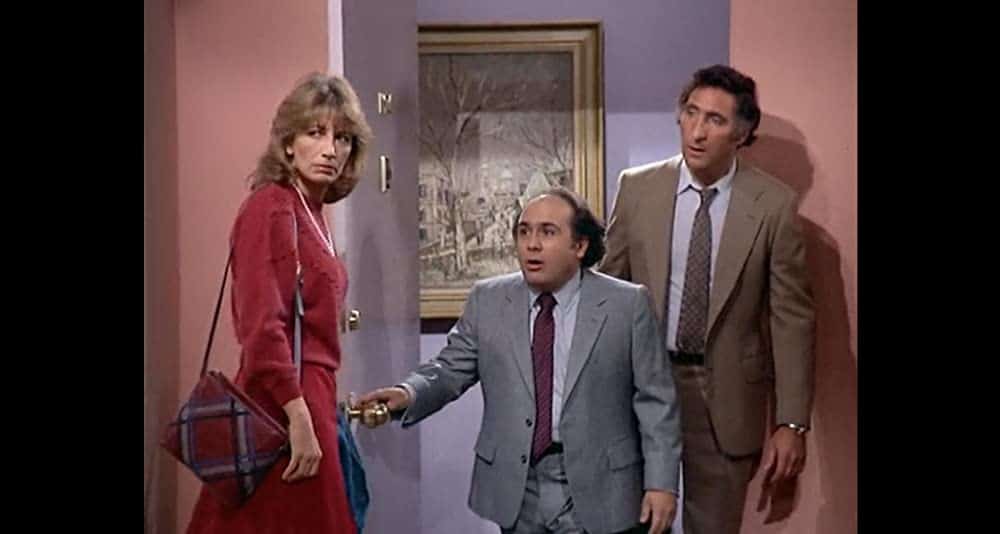
Wealth is handled differently in other countries
In “The Apartment,” Latka ends up signing a lease to live in a luxurious penthouse that he can’t possibly afford. It costs $3,000 a month, which is 1979 dollars was pretty insane. It’s a pretty nuts figure now, unless maybe you’re in a high cost-of-living city.
When Latka realizes that he won’t be able to stay at the penthouse for any longer than a month, he invites his cabbie pals to hang out with him in the penthouse and stay over whenever they want.
Elaine’s grateful.
Elaine: “Thanks so much, Latka, for sharing this with us,” she says.
Latka: “You know in my country everyone shares with everyone.”
Elaine: “Oh, that’s beautiful.”
Latka: “Otherwise, they shoot you.”
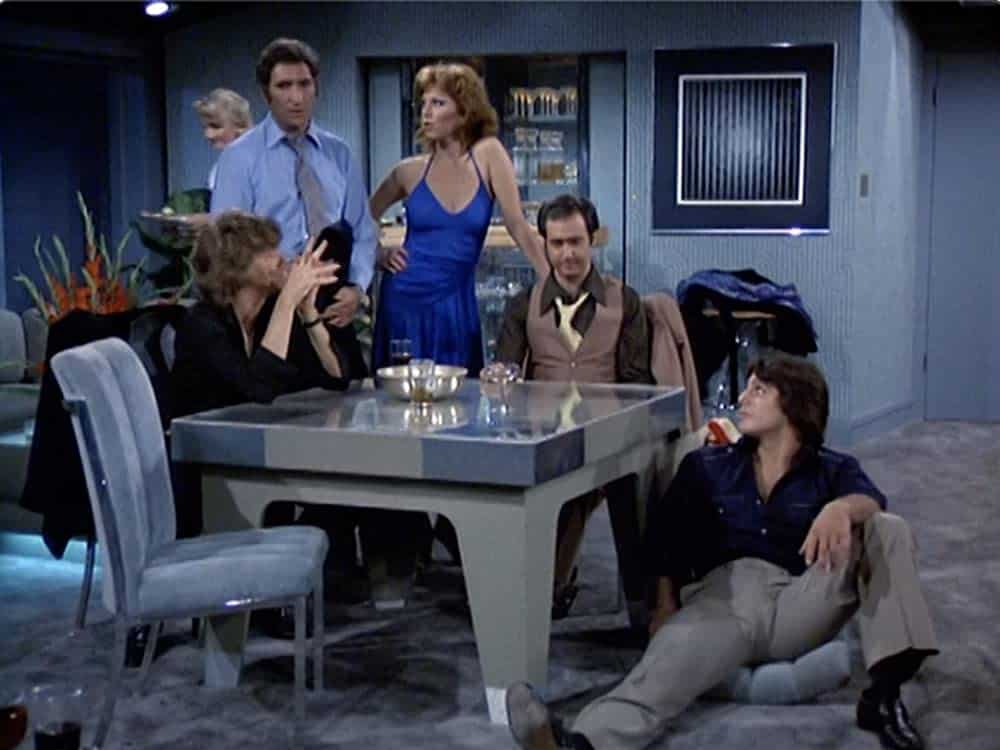
In another Taxi episode, Latka hands Louie a coin. Louie looks at it, puzzled.
“What’s this?” Louie demands.
“It’s a kebble,” Latka says.
“What’s a kebble?”
“One hundred and ten kebble make a lithnitch,” Latka says.
“What’s a litchnich?”
“Two hundred and seventy lithnich make a matta,” Latka says.
“What’s a matta?”
“I don’t know,” Latka says. "What’s the matter with you?"
This seems like a good place to end. Thank you very much.
Where to watch Taxi (at the time of this writing): Taxi can be found on PlutoTV and Paramount Plus, although inexplicably, you can’t find every episode. Sigh. Still, each streaming service has a lot of episodes.
Articles similar to this Taxi story: That’s a tough one. Maybe you’d enjoy this personal finance blog post about another sitcom with a car in the title: Car 54, Where Are You?" It’s about the lessons you can learn about the stock market by watching "Car 54, Where Are You?". You obviously won't want to play the stock market without reading this first.

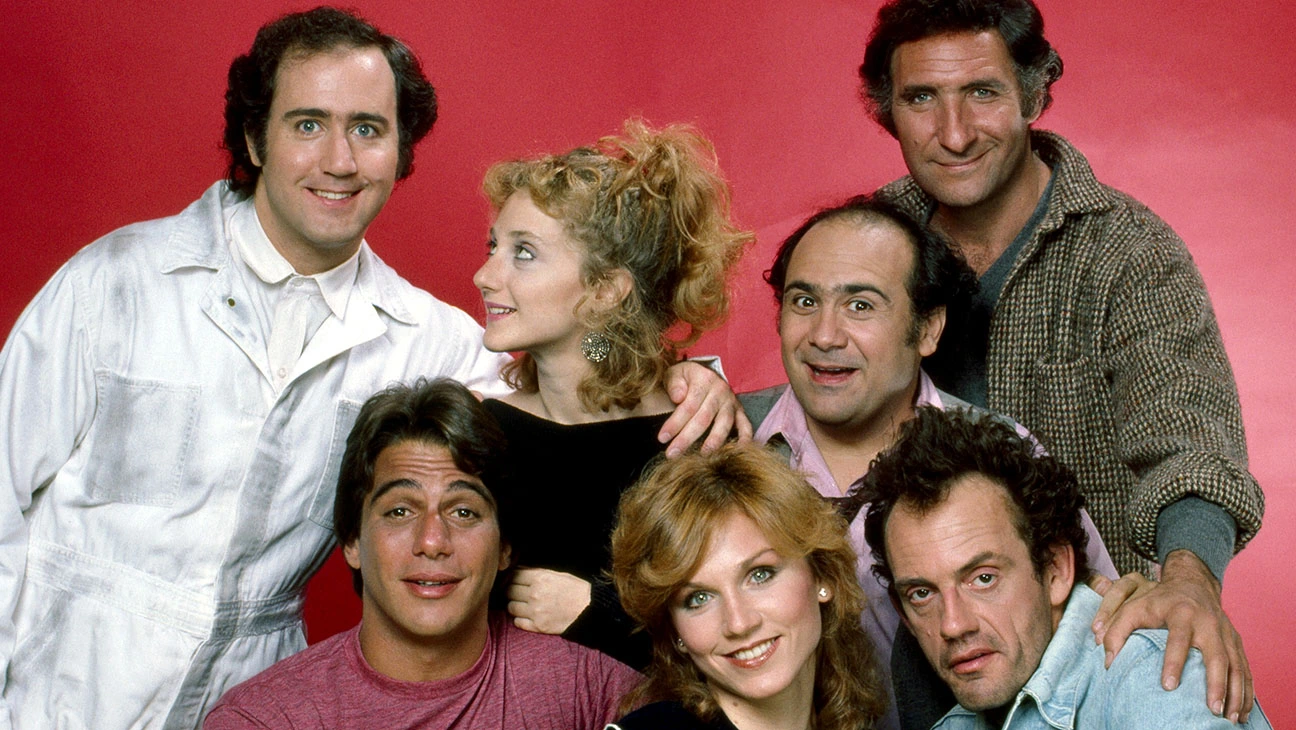
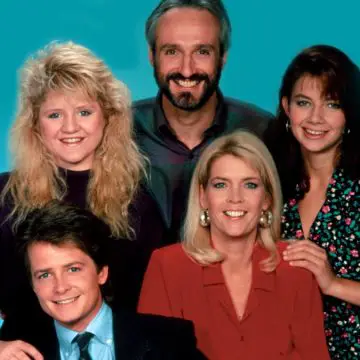
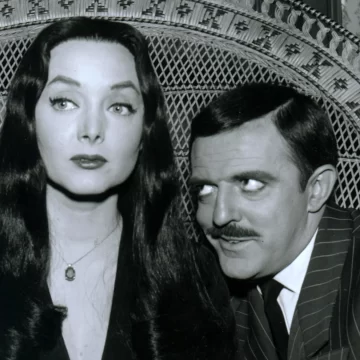


Leave a Reply